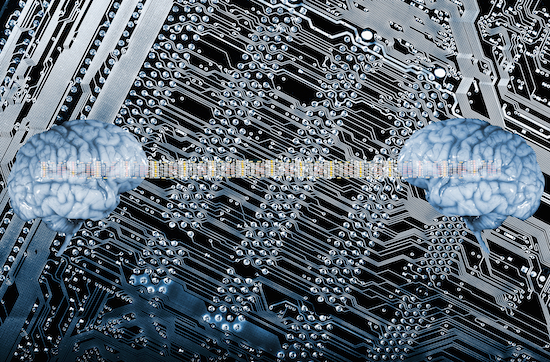By Nirav Desai
By now many of us have heard of ChatGPT and the broader field of Generative Artificial Intelligence (GenAI). The popularity of GenAI tools is soaring, garnering millions of users globally, and has become a powerful resource in areas like education, computer programming, travel planning, creativity, and even emotional support.
GenAI’s rapid popularity has also led to alarm concerning its misuse (e.g., for writing academic papers or college admissions essays) or its use as a substitute for professionals (e.g., TV and movie writers, travel agents, artists and musicians, programmers). As GenAI and AI in general become more sophisticated, it will become an even greater challenge for HR leaders to help their companies and employees navigate this transformative technology so it can be deployed beneficially.
GenAI in Wellness
One area where HR leaders may not have considered GenAI is wellness. But there are several ways GenAI can have a positive impact on mental, emotional, and physical well-being:
1. Therapeutic Conversations: AI-powered chatbots like Woebot offer 24/7 emotional support by engaging users in conversations that mirror therapeutic sessions. This accessibility can alleviate feelings of loneliness and provide a safe space for expression.
2. Personalized Meditative Experiences: GenAI is being used to create personalized meditation sessions. These sessions adapt to user preferences and emotions, enhancing relaxation and mindfulness practices.
3. Creative Expression: For those seeking creative outlets, GenAI tools assist in generating art, poetry, and music. This creative expression can be immensely therapeutic, providing a way for individuals to channel their emotions into something beautiful.
4. Health Tracking and Insights: GenAI is also utilized to analyze health data and provide actionable insights. This helps individuals make informed decisions about their well-being, from fitness routines to dietary choices.
5. Wellness Routines: GenAI could be used to create a customized workout plan, meal plan, or even a wellness itinerary for the day. With the right prompts for restrictions or preferences, people can fine-tune recommendations according to their goals and lifestyle.
Flaws and Risks of GenAI in Wellness
While the potential benefits of GenAI in wellness are significant, it’s important to acknowledge the potential drawbacks and risks:
1. Lack of Human Connection: Relying solely on AI for emotional support might lead to a decline in genuine human interactions, potentially exacerbating feelings of isolation.
2. Bias and Inaccuracy: GenAI systems can inadvertently amplify biases in their training data. This could lead to inaccurate or insensitive advice, affecting emotional well-being.
3. Privacy Concerns: Sharing personal information with AI tools raises concerns about data privacy and security. Unauthorized access to sensitive data could lead to breaches of trust and psychological distress.
4. Depersonalization of Therapy: While AI chatbots offer accessible therapy-like interactions, they cannot replace the depth and expertise of human therapists. Relying solely on AI for mental health support might hinder users from seeking professional help when needed.
GenAI can undoubtedly add value to the wellness landscape, offering innovative ways to enhance emotional, mental, and physical well-being. However, to fully harness its benefits, we must remain cognizant of its limitations and potential risks. At this stage, companies would be best served to leverage GenAI tools only as complements to humans.
Think of it this way: We can take GenAI output and add context that the data models underlying the tools are not (yet) sophisticated enough to incorporate: cultural, societal, ethical, and even commonsensical. By striking a balance between AI-assisted support and human interactions, we can pave the way for a future where technology and well-being coexist.

SVP and Managing Director
Peak Health, a subsidiary of McGriff
Nirav.Desai@McGriff.com
(404) 497-7522
McGriff.com
